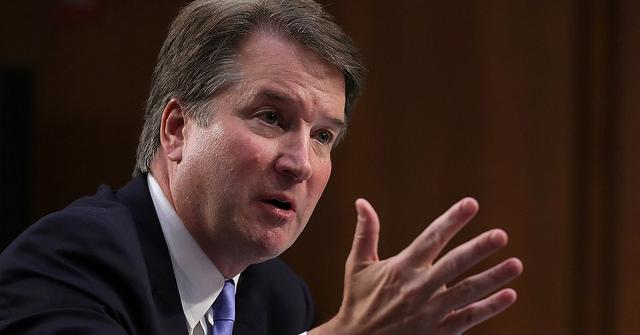Sen. Ron Johnson, R-Wisconsin, said Monday the Senate Judiciary Committee should hear from both U.S. Supreme Court nominee Brett Kavanaugh and Christine Blasey Ford, who accused Kavanaugh of sexually assaulting her in high school.
“Now the accuser has come forward and apparently she wants to tell her story and I think the Senate Judiciary Committee will certainly listen to her,” Johnson said. “And I think it’s very appropriate that they do. I think it’s also appropriate that they listen to what Brett Kavanaugh has to say as well.”
Sen. Johnson met with Kavanaugh Aug. 15 to go over his nomination as well as his judicial philosophy.
The future won’t be female if Republicans have anything to do with it
“Judge Kavanaugh’s impressive legal background combined with his compelling personal history makes his nomination an easy one to support. Most importantly, as I have reviewed his judicial record I am confident of his intent to apply the law as a judge, not alter it as a super-legislator,” Sen. Johnson said. “I look forward to voting to confirm his nomination to the Supreme Court once the Senate has thoroughly but expeditiously completed the confirmation process.”
On these two occasions, Sen. Johnson indicated his support for Kavanaugh and, perhaps more importantly, respected the process of appointing a Supreme Court Justice. That process includes finding out who Brett Kavanaugh is and why he is among the most — or least — qualified individuals to apply and uphold the law.
To reach a true understanding of whether Kavanaugh is worthy of a lifetime appointment to the highest court in the nation, the Senate must leave no stone unturned. That means giving Ford a chance to tell her story instead of bulldozing ahead for the sake of a Republican “win” that would affect Americans for decades.
Party affiliation should have no impact on holding men accountable
Ford wrote a confidential letter to Sen. Dianne Feinstein, D-California, earlier this summer, alleging that Kavanaugh sexually assaulted her in the early 1980s. Ford decided not to speak publicly out of concern for herself and her family.
Despite her decision not to come forward, the letter leaked and, with Ford’s name redacted, the FBI sent it to the White House to be added to Kavanaugh’s background file. The story began to gain traction, the media began to catch on to Ford’s identity and Ford began to hear inaccuracies told about her. She then decided to speak publicly to The Washington Post about the event.
“These are all the ills that I was trying to avoid,” Ford said. “Now I feel like my civic responsibility is outweighing my anguish and terror about retaliation.”
In her explanation, Ford said “Kavanaugh pinned her to a bed on her back and groped her over her clothes, grinding his body against hers and clumsily attempting to pull off her one-piece bathing suit and the clothing she wore over it.”
Ford said a couples therapy appointment in 2012 was the first time she spoke about the incident.
If Ford’s credible allegations of sexual assault are proven to be true, those allegations say a great deal about Kavanaugh’s character and his true regard for the law and the people he claims to serve.
Sexual assault survivors deserve an effective justice system
Consequently, these allegations must be taken seriously for the good of the American people and the integrity of our Constitution, as well as survivors of sexual assault who risk their jobs, reputations and credibility to come forward and seek justice.
Republicans may be pressed for time, given they may lose their majorities in the House and the Senate to a blue wave come Election Day in November, but that doesn’t justify confirming an unfit Supreme Court nominee who would shape American society for the foreseeable future.
Instead, Republicans and Democrats alike must tread carefully, take Christine Blasey Ford’s allegation seriously and make conscious efforts to preserve democratic procedures and the integrity of the Supreme Court as the highest, most respected court in the country.
Juliet Dupont ([email protected]) is a sophomore majoring in political science and journalism.














